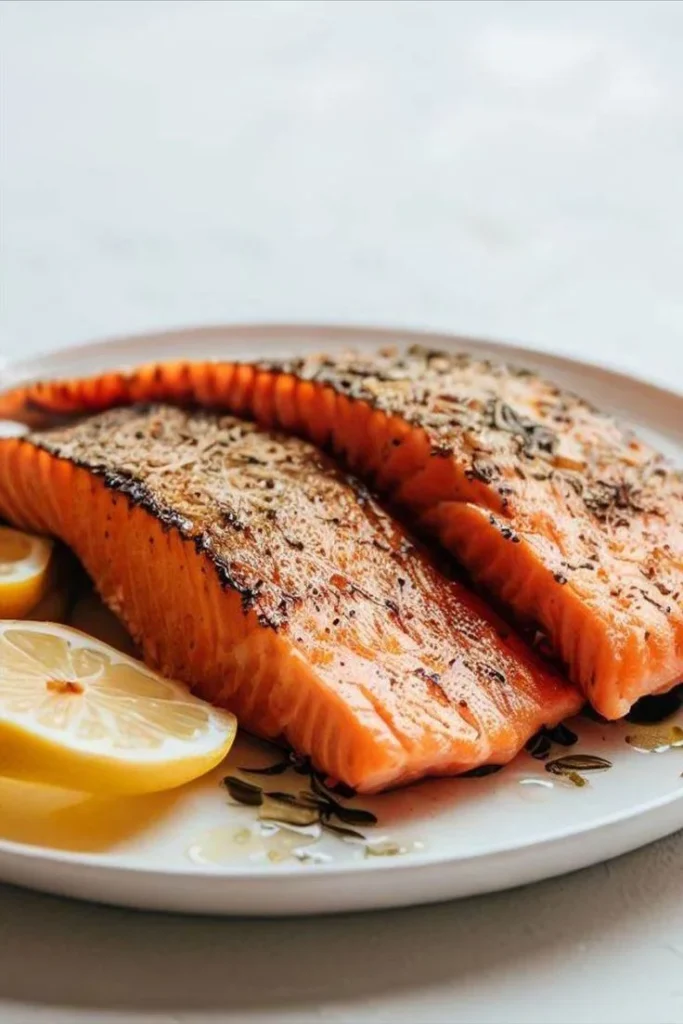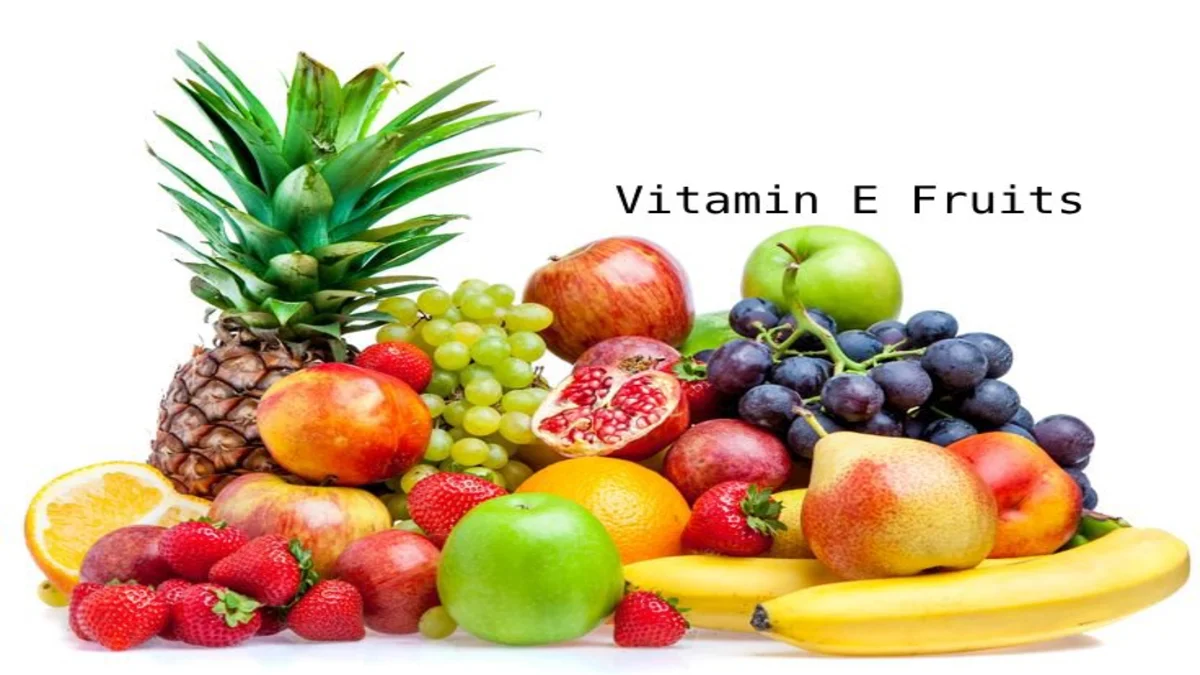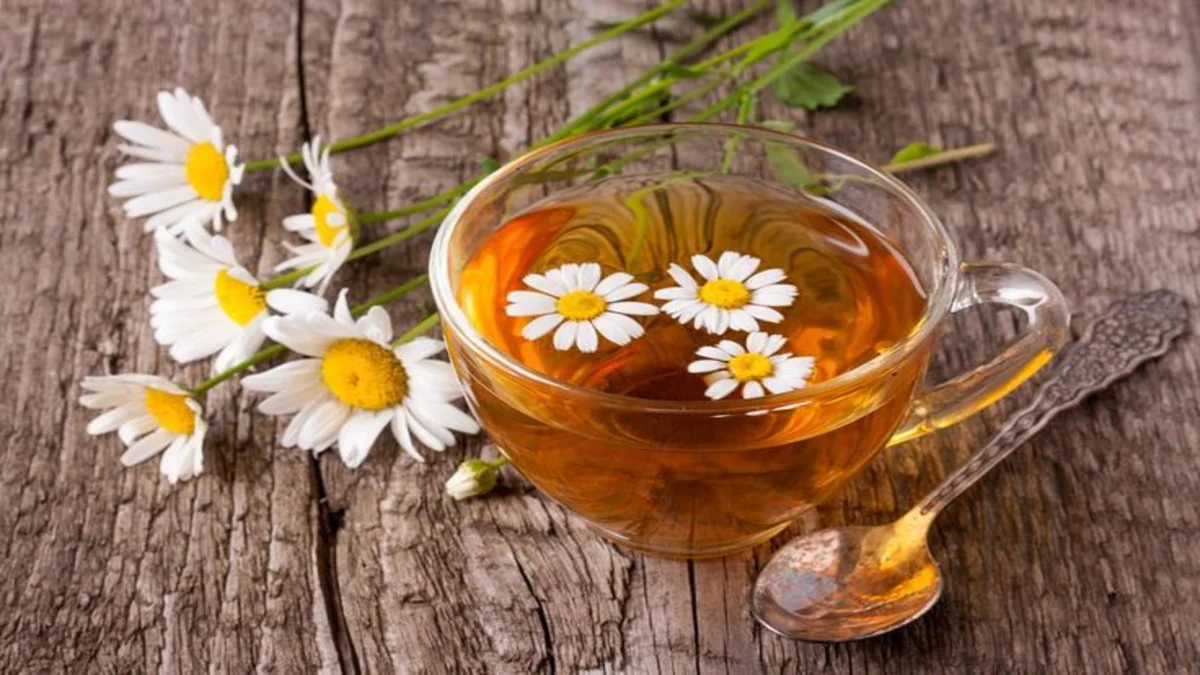Looking to spice up your life? Check out our collection of top spices for body, brain, and heart health! improving digestion to boost immunity.
Spices have been used for centuries to improve the health of food. Today, many people know spices as ingredients for cooking but may not be aware of their role in health. In this article, we will discuss the best spices for body, brain, and heart.
spices for body benefits
Spices offer a variety of benefits beyond adding flavor to food. Many spices have been used traditionally for their medicinal properties, and modern research continues to uncover their potential health advantages. Here are some benefits of spices: (1, 2, 3)
- Antioxidant Properties: Many spices are rich in antioxidants, which help neutralize harmful free radicals in the body. This can contribute to reducing oxidative stress and inflammation.
- Anti-Inflammatory Effects: Certain spices, such as turmeric and ginger, have anti-inflammatory properties. They may help alleviate inflammation and associated conditions.
- Digestive Aid: Spices like ginger, peppermint, and fennel can aid digestion by promoting the production of digestive enzymes, reducing indigestion, and easing bloating.
- Blood Sugar Regulation: Some spices, including cinnamon, may help regulate blood sugar levels, potentially benefiting individuals with diabetes or those at risk of developing the condition.
- Heart Health: Certain spices, such as garlic and cayenne pepper, have been linked to cardiovascular benefits, including improving blood circulation and lowering blood pressure.
- Antimicrobial Properties: Spices like garlic and oregano possess antimicrobial properties that can help fight against bacteria, viruses, and fungi.
- Weight Management: Capsaicin, found in chili peppers, has been associated with increased metabolism and may contribute to weight management efforts.
- Cognitive Function: Turmeric, specifically its active compound curcumin, has been studied for its potential to support brain health and may have neuroprotective effects.
- Immune System Support: Spices like garlic are believed to have immune-boosting properties, helping the body resist infections and illnesses.
- Rich in Nutrients: Many spices are rich in essential vitamins and minerals, adding nutritional value to meals in small quantities.
- Natural Preservatives: Some spices, such as cinnamon and cloves, have natural preservative properties that can help extend the shelf life of food.
- Flavor Enhancement: Of course, one of the primary benefits of spices is the enhancement of flavor in food, making meals more enjoyable and satisfying.
It’s important to note that while spices offer numerous potential health benefits, individual responses can vary, and it’s always advisable to consult with a healthcare professional for personalized advice, especially if you have specific health c
spices for body
Several spices are known for their potential health benefits and can be incorporated into your diet to support overall well-being. Keep in mind that individual responses may vary, and it’s essential to maintain a balanced diet and consult with a healthcare professional for personalized advice. Here are some spices often considered beneficial for the body: (6, 7)
- Turmeric: includes curcumin, which has been shown to have anti-inflammatory and antioxidant qualities. It provides potential advantages for cardiovascular and cognitive health as well as joint health.
- Ginger: possesses anti-inflammatory qualities and might be beneficial for nausea, upset stomach, and aching muscles. It has a lot of antioxidants as well.
- Garlic: Garlic is well-known for its antibacterial qualities, which may help the immune system and cardiovascular health. Additionally, it has allicin, a substance that may be beneficial to health.
- Cinnamon: Antioxidant in nature, may aid in blood sugar regulation, and imparts a pleasant flavor without adding sugar.
- Cayenne Pepper: includes capsaicin, which may speed up metabolism and aid in controlling weight. It may also be beneficial to the cardiovascular system.
- Black Pepper: includes piperine, an antioxidant, and improves the absorption of minerals. It might have anti-inflammatory properties as well.
- Cumin: Packed with antioxidants and perhaps anti-inflammatory. It’s a fantastic iron source as well.
- Coriander: Possesses anti-inflammatory and antioxidant qualities. It’s a fantastic source of dietary fiber as well.
- Cardamom: It helps with digestion and may have anti-inflammatory and antioxidant properties.
- Oregano: possesses antibacterial qualities and a high antioxidant content. It might have anti-inflammatory properties as well.
- Rosemary: has anti-inflammatory and antioxidant components. It’s also connected to better digestion and mental clarity.
- Thyme: abundant in antioxidants and might possess antibacterial qualities. Vitamins C and A are also abundant in it.
Adding a range of these spices to your food might enhance its flavor and even offer health advantages. Always keep in mind that moderation is the key to maintaining a diet that is well-balanced and rich in a range of nutrients from various food sources. Seek the advice of a healthcare expert if you have any specific health concerns or conditions.
spices for brain
Various spices have been investigated for possible advantages to cognition and support of brain function. The following spices are thought to have advantageous effects on the brain: (4)
- Turmeric: The active compound in turmeric, curcumin, has anti-inflammatory and antioxidant properties. It has been studied for its potential role in supporting brain health and may have neuroprotective effects.
- Cinnamon: Cinnamon has been linked to improved cognitive function and may help with memory and attention. It also has antioxidant properties.
- Rosemary: Rosemary contains compounds that may have cognitive-enhancing effects. The aroma of rosemary has been associated with improved memory and alertness.
- Saffron: Saffron has antioxidant properties and may have antidepressant effects. Some studies suggest it could be beneficial for cognitive function.
- Ginger: Ginger has anti-inflammatory properties and may have neuroprotective effects. It is also known for its potential to reduce oxidative stress.
- Black Pepper: Piperine, the active compound in black pepper, has been shown to enhance the absorption of certain nutrients and may have neuroprotective effects.
- Oregano: Oregano contains antioxidants and has anti-inflammatory properties, which may contribute to overall brain health.
- Sage: Sage has been traditionally used to enhance memory and cognitive function. Some studies suggest that sage may have potential benefits for brain health.
- Thyme: Thyme contains compounds with antioxidant properties, which may help protect the brain from oxidative stress.
- Cocoa: While not a traditional spice, cocoa contains flavonoids that have been associated with improved cognitive function and may have neuroprotective effects.
spices for heart
Some spices may support heart health and provide benefits for the cardiovascular system. The following spices are frequently thought to be beneficial for heart health: (5)
- Garlic: Studies have been conducted on garlic’s ability to lower cholesterol and blood pressure. Additionally, it might have antioxidant and anti-inflammatory properties.
- Cayenne Pepper: The main ingredient in cayenne pepper, capsaicin, has been associated with better blood circulation and may have a hypotensive effect.
- Turmeric: The primary ingredient in turmeric, curcumin, possesses antioxidant and anti-inflammatory qualities. It might benefit heart health by lowering inflammation and enhancing blood vessel performance.
- Cinnamon: Cinnamon has been linked to lowered blood sugar levels and may help enhance cholesterol profiles, two factors that are beneficial to heart health.
- Ginger: Due to its antioxidant and anti-inflammatory qualities, ginger may be good for cardiovascular health. It might also assist in lowering blood pressure.
- Oregano: Compounds found in oregano may have anti-inflammatory and antioxidant properties, which may benefit heart health.
- Coriander: Coriander has been studied for its potential to lower cholesterol levels and may have anti-inflammatory properties.
- Rosemary: Rosemary may help increase blood flow and has antioxidant qualities, both of which may be good for heart health.
- Cumin: Cumin may have antioxidant effects and has been associated with improvements in lipid profiles, including lower levels of LDL cholesterol.
- Fennel: Fennel may help lower blood pressure and has antioxidant properties that could contribute to heart health.
side effects of spices
While herbs and spices are generally considered safe when used in culinary amounts, consuming excessive amounts or using them in concentrated forms (such as supplements or extracts) may lead to potential side effects. Additionally, individual responses to herbs and spices can vary, and some people may be more sensitive or allergic to certain compounds. Here are some potential side effects associated with specific herbs and spices:
- Allergic Reactions: Some individuals may be allergic to certain herbs or spices, leading to symptoms such as itching, swelling, or difficulty breathing. Common allergens include coriander, fennel, and certain types of mint.
- Gastrointestinal Issues: Spices can sometimes cause digestive problems, especially in large quantities. Common culprits include chili peppers, black pepper, and garlic, which may cause heartburn, indigestion, or upset stomach in some individuals.
- Blood Pressure Effects: Certain spices, such as cayenne pepper, may temporarily increase blood pressure due to their spicy or stimulating nature. Individuals with hypertension should consume such spices cautiously.
- Blood Clotting: High doses of herbs like garlic and ginger may have blood-thinning effects. While this can be beneficial for some individuals, those taking blood-thinning medications should exercise caution and consult their healthcare provider.
- Pregnancy Concerns: Some herbs, such as basil, parsley, and sage, may have components that could potentially stimulate uterine contractions and are generally advised against in large amounts during pregnancy.
- Interactions with Medications: Certain herbs and spices can interact with medications. For example, garlic may interact with blood-thinning medications, and cinnamon might affect blood sugar levels. It’s essential to inform your healthcare provider about any herbs or spices you regularly consume, especially if you are on medication.
- Sensitivity to Capsaicin: Capsaicin, the compound responsible for the heat in chili peppers, may cause irritation or a burning sensation, particularly in individuals with a low tolerance for spicy foods.
- Liver Toxicity: Some herbs and spices, when consumed in very high amounts or concentrated forms, may have potential liver toxicity. For instance, high doses of certain types of comfrey or kava have been associated with liver damage.
It’s crucial to practice moderation and be aware of your tolerance and potential sensitivities to herbs and spices. If you have pre-existing health conditions or concerns, or if you are pregnant or breastfeeding, it’s advisable to consult with a healthcare professional before making significant changes to your diet or using herbs and spices in therapeutic amounts.
Herbs and Spices Recipes
Garlic Herb Roasted Chicken:

Ingredients: Whole chicken, garlic, rosemary, thyme, olive oil, salt, and pepper.
Method: Rub the chicken with minced garlic, chopped rosemary, thyme, salt, and pepper. Roast until golden brown.
Basil Pesto Pasta:
Ingredients: Basil leaves, pine nuts, garlic, Parmesan cheese, olive oil, salt, and pepper.
Method: Blend basil, pine nuts, garlic, and Parmesan. Drizzle in olive oil while blending. Toss with cooked pasta.
Spiced Lentil Soup:
Ingredients: Lentils, onions, carrots, celery, garlic, cumin, coriander, turmeric, paprika, vegetable broth, salt, and pepper.
Method: Sauté vegetables, add spices, lentils, and broth. Simmer until lentils are tender.
Cumin-Spiced Quinoa Salad:

Ingredients: Quinoa, cucumber, cherry tomatoes, red onion, feta cheese, olive oil, lemon juice, cumin, salt, and pepper.
Method: Cook quinoa, and toss with veggies, feta, and a dressing made from olive oil, lemon juice, cumin, salt, and pepper.
Chai-Spiced Oatmeal:
Ingredients: Rolled oats, milk, chai spices (cinnamon, cardamom, ginger, cloves), honey, and nuts.
Method: Cook oats with milk and chai spices. Top with honey and nuts.
Lemon Garlic Herb Grilled Salmon:

Ingredients: Salmon fillets, lemon, garlic, fresh dill, olive oil, salt, and pepper.
Method: Marinate salmon in a mixture of lemon juice, minced garlic, chopped dill, olive oil, salt, and pepper. Grill until cooked.
Rosemary Garlic Roasted Potatoes:
Ingredients: Potatoes, rosemary, garlic, olive oil, salt, and pepper.
Method: Toss potatoes with minced garlic, chopped rosemary, olive oil, salt, and pepper. Roast until crispy.
Minty Tzatziki Sauce:
Ingredients: Greek yogurt, cucumber, mint, garlic, lemon juice, salt, and pepper.
Method: Combine grated cucumber, chopped mint, minced garlic, and lemon juice with Greek yogurt. Season with salt and pepper.
Turmeric Chicken Curry:
Ingredients: Chicken, onion, garlic, ginger, turmeric, cumin, coriander, coconut milk, tomatoes, salt, and pepper.
Method: Sauté onions, garlic, and ginger. Add chicken, spices, coconut milk, and tomatoes. Simmer until the chicken is cooked.
Cinnamon Apple Crisp:
Ingredients: Apples, cinnamon, nutmeg, oats, flour, butter, brown sugar, and vanilla ice cream.
Method: Toss sliced apples with cinnamon and nutmeg. Make a crumble topping with oats, flour, butter, and brown sugar. Bake until golden. Serve with vanilla ice cream.
Pumpkin Spice Smoothie:
Ingredients: Pumpkin puree, banana, almond milk, cinnamon, nutmeg, ginger, and ice.
Method: Blend all ingredients until smooth. Add sweetener if desired.
Cumin-Spiced Chickpea Salad:
Ingredients: Chickpeas, cucumber, tomatoes, red onion, feta cheese, olive oil, lemon juice, cumin, salt, and pepper.
Method: Combine chickpeas with veggies, feta, and a dressing made with olive oil, lemon juice, and cumin.
Sage and Brown Butter Butternut Squash Risotto:
Ingredients: Arborio rice, butternut squash, sage, chicken broth, white wine, Parmesan cheese, butter, salt, and pepper.
Method: Sauté sage in brown butter, add rice, then gradually add broth and wine until creamy. Stir in roasted butternut squash and Parmesan
FAQs
what are the three healthiest spices?
what spices are good for warming your body?
Which is the most powerful spice?
Are there any calories in spices?
What is the miracle herb for skin?
Sources
- Jiang, T. A. (2019). Health benefits of culinary herbs and spices. Journal of AOAC International, 102(2), 395-411.
- Kurian, A. (2012). Health benefits of herbs and spices. In Handbook of herbs and spices (pp. 72-88). Woodhead Publishing.
- Isbill, J., Kandiah, J., & Khubchandani, J. (2018). Use of ethnic spices by adults in the United States: An exploratory study. Health promotion perspectives, 8(1), 33.
- Mirmosayyeb, O., Tanhaei, A., Sohrabi, H. R., Martins, R. N., Tanhaei, M., Najafi, M. A., … & Meamar, R. (2017). Possible role of common spices as a preventive and therapeutic agent for Alzheimer’s disease. International journal of preventive medicine, 8.
- Alcamo, A., & Weiss, S. L. (2022). Is Heart Rate Variability the Spice of Life? Pediatric critical care medicine: A Journal of the Society of Critical Care Medicine and the World Federation of Pediatric Intensive and Critical Care Societies, 23(6), 477.
- Ericson, B., Gabelaia, L., Keith, J., Kashibadze, T., Beraia, N., Sturua, L., & Kazzi, Z. (2020). Elevated levels of lead (Pb) were identified in Georgian spices. Annals of Global Health, 86(1).
- Butt, M. S., Naz, A., Sultan, M. T., & Qayyum, M. M. N. (2013). Anti-oncogenic perspectives of spices/herbs: A comprehensive review. EXCLI journal, 12, 1043.





